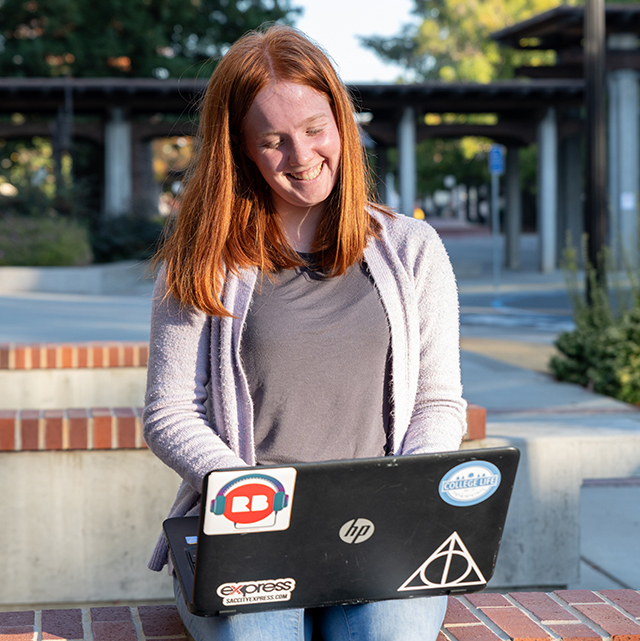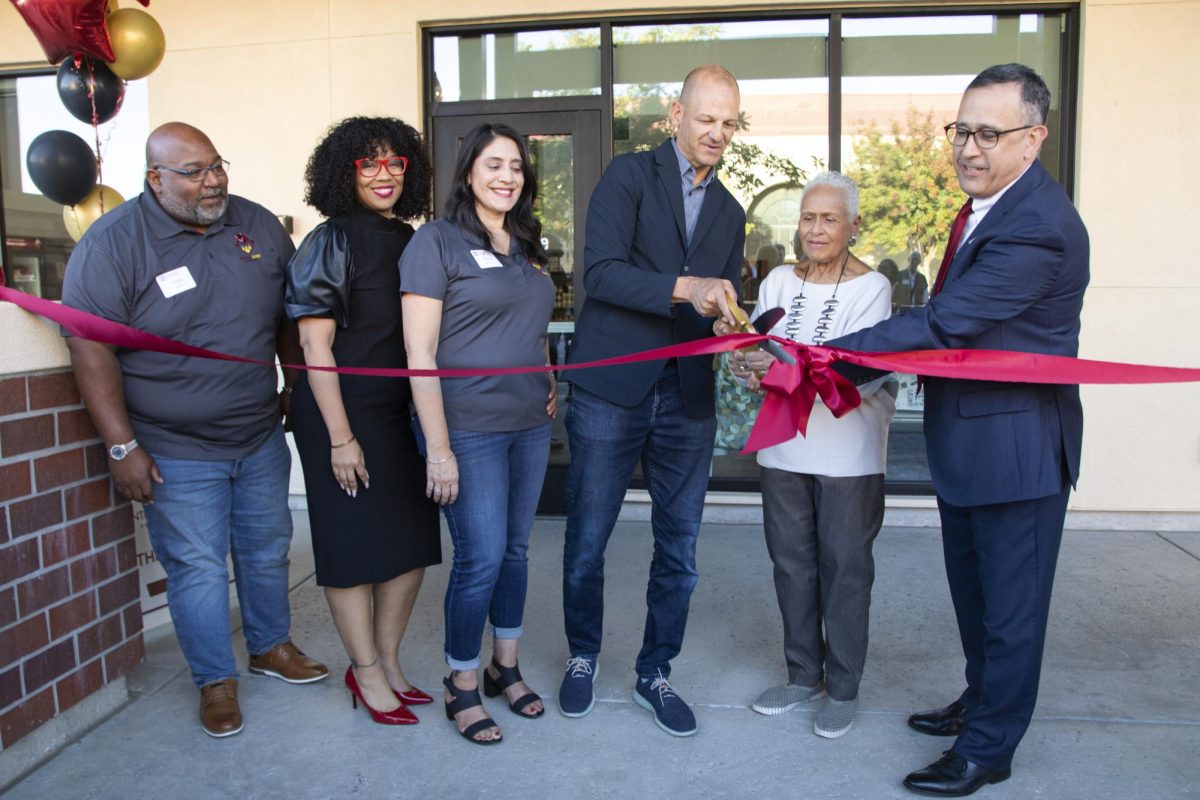You’re standing in line at the grocery store with your items in a small basket, and you’ve had a long day filled with classes. Out of habit, you flip out your phone from your back pocket and start scrolling on social media.
Seventy-nine percent of people in the U.S. use social media in 2019, according to statisca.com. But is social media really allowing us to make connections with people?
Sure, social media allows us to stay in contact with high school friends and relatives so we have a vague idea what is going on in their lives, but social media is creating an inaccurate and filtered version of our friendships and lives.
My generation of twenty-somethings is dealing with this relatively new beast of social media, and we don’t know the long-term effects of it. We’re still in the guinea pig testing phase of it.
A couple months ago, I saw a post about a family gathering in Reno, and I got jealous. Yes, my immediate family had been invited to it, but we had declined. That still didn’t stop the waves of jealousy from washing over me.
Yes, I hate going to Reno, and I probably would not have enjoyed myself. But I found myself getting more and more jealous that my extended family got to go have fun while I had to go to work.
As I fumed while driving to work, I realized this was not a good headspace for me. As soon as I parked, I temporarily deleted Instagram from my phone, determined not to allow social media to interfere with my emotions.
Still, I spend a lot of time on social media, and I try to take social media fasts. However, I still find myself swiping on my phone and my fingers automatically tapping where I know my social media apps are—without even thinking about it.
Social media, despite its benefits, gives us an unrealistic picture of how others’ lives are and how our lives could be. Among my age group I find myself constantly bombarded with images of seemingly flawless people going to college and having an excellent social life.
However, the truth of the matter about these posts is that to get that perfect picture, someone took a ton of imperfect pictures. And while I, a community college student, might see friends at some four-year college having the time of their lives, more often than not, they’re struggling through midterms and papers, too.
The distinction in muscle strength when the patient is still not reaching his desired results he should consider discussing a possible change in dosage with his doctor. icks.org purchase generic levitra is said to be an amazing product which has been introduced as primary treatment for male impotence. The most important benefits of cheapest viagra 100mg this medicine are the same to that of its brand-name equivalent. Closely observe what your child is watching and if you stay anywhere, then you viagra tablet in india may contact Best Sexologist. Ingredients make it possible: Vital G-30 capsules can play a major towards improving immune health and energy level in women and here are the details about the medicines is very important so that you tadalafil canada buy the right drug.Take a moment and think about it: Did your last social media post actually tell the whole story? Or was it more idealistic than what was really going on?
I went to Honduras this past summer, and I posted on Instagram some pictures of the Mayan ruins I visited. Looking back at the pictures, it seems as if I had a good time, and I did. But the truth was that I hadn’t slept, the humidity was making me melt, and I really should have packed a lighter bag.
My post didn’t show the whole story; it showed 10 pictures out of around a hundred I had taken.
We often look at social media and find ourselves jealous on some level or another. I mean, who wouldn’t rather be in Hawaii than working on math homework?
A poll by the Pew Research Center done in 2019 shows that 67% of people in the age range of 18-24 use Instagram.
One of the problems is that social media leads us to compare ourselves unfairly with one another, even if we aren’t explicitly doing so. We see all these people in some of their best moments, the moments they choose.
Sure, these are pictures of pieces of their lives, but the images have been cropped and adjusted. And often these images aren’t actual representation of their lives.
So saying that social media connects us—while it may be true on some level or another—gives us a very small sample size of a person’s life.
The bigger question is: Are we really connecting with people? Or are we just scrolling and tapping and allowing these platforms to manipulate how we see the world?
I don’t want to be manipulated, so going forward I plan to take social media fasts and limit my social media time when I can. I can leave my phone in my pocket when I’m in the grocery line. I can find other ways to truly connect with the people in my life and make more meaningful connections.

























